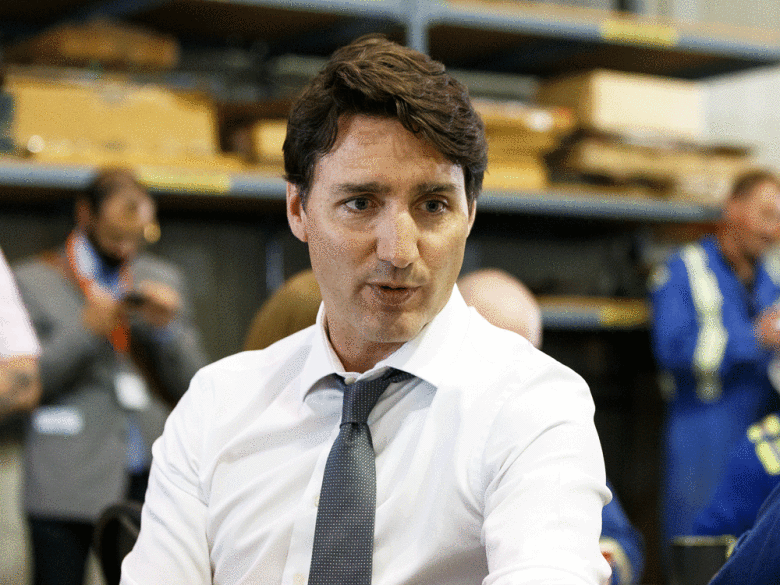On Wednesday morning, the worst thing Justin Trudeau had to deal with was getting panned for a less-than-great interview with Hasan Minhaj.
But by day’s end, an aggressive interview by the U.S. comedian was the least of the prime minister’s concerns. Justice David Stratas had seen to that.
Stratas, of the Federal Court of Appeal, has decided to allow six of 12 motions for judicial review of the federal government’s second approval of the bitterly controversial Trans Mountain pipeline expansion. The expansion would triple the pipeline’s capacity, bringing Alberta energy to the B.C. coast for export abroad. This is more than just an economic necessity for Alberta’s economy, a way of getting around the supply constraints that are depressing its oil sector. It is increasingly a national unity issue. Alberta premier Jason Kenney has warned in blunt terms that his population is fed up with a federation that cannot build essential infrastructure that it has repeatedly signed off on. We should take him at his word.
Stratas’s ruling is undeniably a setback to the expansion of Trans Mountain, where construction work had finally been getting underway. But it’s a fascinating ruling — and a close read offers some hope that the setback will be brief. But not brief enough, in all likelihood, to do the Liberals much good.
Stratas has permitted the half-dozen motions only on very narrow grounds and struck down a broad swath of others in their totality. He rejects entirely the notion that the federal government’s purchase of the pipeline puts them in a conflict of interest. “The Governor in Council is not the Government of Canada,” he wrote. “The Governor in Council, the decision-maker here, does not own the project.” Bam. Done.
Stratas also entirely dismisses appeals made on environmental grounds. “The Governor in Council found that compelling public interest considerations clearly outweighed the adverse environmental effects. The decisive and emphatic nature of (that finding) leads inexorably to the conclusion (that) the Governor in Council would still conclude the project is, on balance, in the public interest and would still approve it.” A series of miscellaneous objections, Stratas notes, have already been addressed in the pipeline’s favour and will not be relitigated.
But there are the six motions he allowed, of course. And this is where things start to become awkward for the prime minister.
Every party will benefit from this, with the exception of the incumbent
Stratas allowed the motions on the narrow grounds that it is arguable that mandated requirements for Indigenous consultation still have not been met. Stratas grants that there was additional consultation, notes that Indigenous groups deemed it insufficient, and, critically, notes further that the federal government took no position at all. While Indigenous and First Nations groups filed objections to the new consultation process “consisting of many thousands of detailed pages,” the federal government, “including the Attorney General of Canada representing the Government of Canada, took no position for or against” the motions. “The respondents did state that if leave were granted and applications for judicial review were brought they would support the Governor in Council’s decision and oppose the applicants,” Stratas said. “But on the leave motions they offered no submissions or evidence to assist the Court.”
I’m no lawyer. But it’s hard to read that as anything else than Stratas saying, in an adversarial system, when one side doesn’t show up, the other gets to have their say.
So there will be reviews. Stratas has ordered that they be narrowly focused on the specific issue of whether the new consultations were sufficient, and wants the review completed “very quickly,” citing “substantial public interest” in a rapid conclusion. “Very quickly,” of course, is obviously relative — we’re talking about Canadian courts here. But it’s conceivable that the reviews could be wrapped up in a matter of months. Before the end of the year, perhaps.
It is increasingly a national unity issue
If that’s the case, and the pipeline gets built, Wednesday’s ruling is a bump in an already rocky road. But the matter is not likely to be settled in the next seven weeks. And that means the Liberals are going into the next campaign with this issue once again at top of mind.
What will the Liberal message be for those seven weeks? There has never been a Liberal position on Trans Mountain that’s even remotely coherent. The strongest signal they’ve sent is obviously buying it — but then they don’t bother arguing against its opponents? The Tories are going to spend the next seven weeks raining (hopefully metaphorical) artillery down on the Liberals on this, asking why the government spent billions buying a pipeline they didn’t bother to show up and advocate for in court. And anything the Liberals say will just give the NDP and the Greens an opportunity to remind the left that Trudeau is building an oil pipeline.
Pipeline issues were always going to be an issue in this campaign. But now it’s a live issue again. Every party will benefit from this, with the exception of the incumbents. And they seem to have done little to prevent that from happening.
It’s baffling, but it’s what happened. Trans Mountain is front and centre. With the election now just weeks away.
• Twitter: mattgurney






















